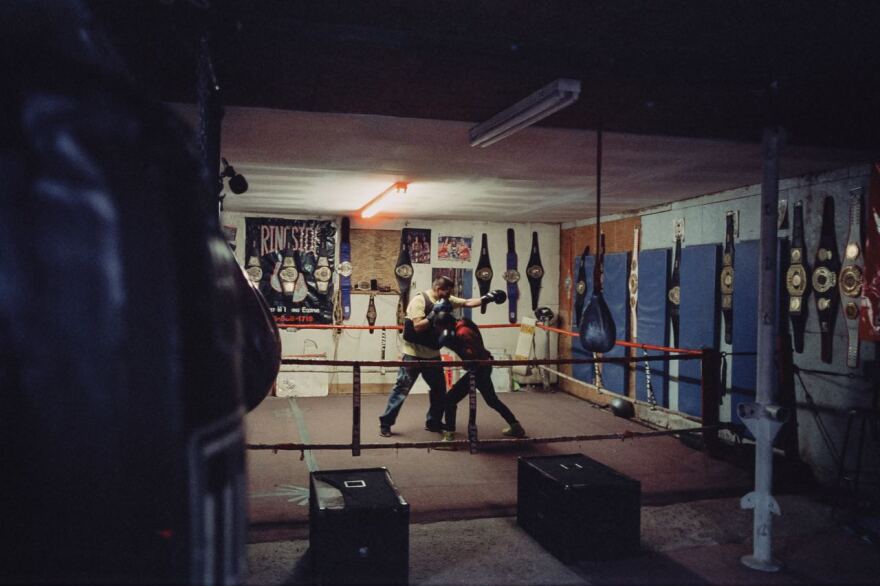Mariah Bahe is a fourth-generation boxer from Chinle on the Navajo Nation. The 16-year-old holds several national titles and is one of only a handful of female Native Americans in the sport. She dreams of becoming the first Indigenous female boxer to ever make the U.S. Olympic team ahead of the 2024 games in Paris. A new documentary chronicles her life and struggles as well as her victory earlier this year at the National Silver Gloves Tournament. KNAU’s Ryan Heinsius produced this profile about the documentary, Bahe’s lifelong love of the sport and her family’s deep roots in boxing.
“Mariah: A Boxer’s Story” can be streamed on the Olympic Channel and other online platforms.
Mariah Bahe: I would say, the way it makes me feel when I’m training or in the gym, I feel really powerful in a way and confident. And I just feel most confortable when I’m training or in the gym, like it was made for me in a way.
My great grandpa was in the Army and he learned boxing from there, and when he came back he taught my grandpa, Cal Bahe. And then my grandpa loved the sport so much he taught my dad and my uncles my aunties. And when he passed my dad took over the gym and he started training us.

John Bahe (from documentary): The main thing I tell her is no matter what happens, give it your all, 100%. Win, lose or draw, I’m proud of you.
Mariah Bahe: My dad and my mom are my coaches and my brothers, they’re older now, and they’re also my coaches. But when we were younger they were my sparring partners also, we would train together every day. We would be in the gym every day with each other. When they got older they stopped, but they’re still in the gym with me, training me, doing mitts and sparring with me. And also, my dad is there every day and it’s like a family sport for us.
John Bahe (from documentary): Get it to a point where it’s not a thought just reaction.
Mariah Bahe: We don’t have a lot of new and improved stuff that other gyms have around the world. They can just go down the road and there will be a gym, weightlifting and treadmills everywhere. And for me, I have to drive two to three hours to get decent sparring. You just got to make it happen yourself, you can’t really depend on anybody or anything, you’ve got to do it yourself, and it takes a lot of motivation and inspiration to do it, especially for me. You’ve just got to put in the extra work and extra time into boxing.

I see it as an advantage, too, because we do a lot of other things I don’t think the other gyms would do. When we travel, especially in the winter, and they always ask how we stay warm. We have to build a fire every night. We have to haul wood and that takes a lot of work into it. I would see that as an advantage too.
John Bahe (from documentary): We claim our Native background and we’re proud of it. We’re proud to be Navajos, we’re proud to be Eastern Band Cherokees.
Mariah Bahe: I’m making it happen especially for me with my boxing, with all the hours put into it, all the hard work and everything. When I win the Olympics, it’s going to be really amazing. To me it would mean all my hard work, and the years I put into boxing and everything, my dream’s going to finally come true.
Mariah Bahe (from documentary): I would be the first female Native American to do that. It’s to prove that Native Americans can be something.
Mariah Bahe: When COVID hit Navajo Nation it hit really hard. All my tournaments this year was canceled, gyms were closed and everything. It was really hard for Navajo Nation and especially Arizona too. With me and my family, we kept training through those times.
John Bahe (from documentary): It gives you an outlet to the pressures of life. It also teaches you and shows you that just like in life, you got to start from the bottom, you have to work for your goal.
Mariah Bahe: Right now I’m just training for the upcoming tournaments in 2021, and just keeping my head up and trying to keep motivated for the next tournaments.




